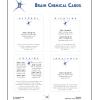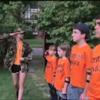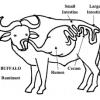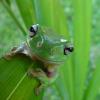Search Results
Showing results 1 to 12 of 12

Crossing the Synaptic Gap
Source Institutions
In this neuroscience activity, learners conduct a simulation to demonstrate how multiple incoming signals influence the action of neurons.

Exercise and Memory
Source Institutions
This activity (page 1 of the PDF under SciGirls Activity: Exercise and Memory) is a full inquiry investigation into the effects of exercise on short term memory.

Habitat Adaptation Matchup
Source Institutions
In this activity, learners work in small groups to match various marine animals with their different environments.

Ruminating on the Digestive System
Source Institutions
In this activity, learners will review the functions of basic digestive organs, understand how diet affects digestion, understand how digestive tracks may differ, and then step outside to compare the
Coincidental Colonization
Source Institutions
In this game of chance, learners will discover how organisms colonized the Galápagos Islands, experiencing how chance plays a role in the successful dispersal of species to new areas.

Caller ID: The Frog - and Toad! - Mating Game
Source Institutions
This activity is a sensory experience that recreates the sounds of a pond at night.
A Day in the Life of a San Francisco Native Animal
Source Institutions
In this activity, students will learn some key information about a San Francisco native animal and then write a firsthand account of their experience from the perspective of that animal in the time be

Make your own Antelope Horns!
Source Institutions
In this craft activity, learners will explore the structure and purpose of antelope horns by constructing their own headband using toilet paper rolls and yarn.

Super Memory
Source Institutions
In this activity (pages 26-29 of the PDF), learners investigate how they can develop super memories by using mnemonic devices.
The Sharp Eyes of a Naturalist
Source Institutions
In this creative activity, learners will practice looking carefully to observe details and to become familiar with dioramas as a method for displaying naturalistic scenes.

What-a-cycle
Source Institutions
In this activity, learners act as water molecules and travel through parts of the water cycle to discover that it is more complex than just water moving from the ground to the atmosphere.

Design a Flower
Source Institutions
In this activity, learners learn about the adaptations that flowers have developed which support pollination. Learners also list their personal preferences (i.e.
